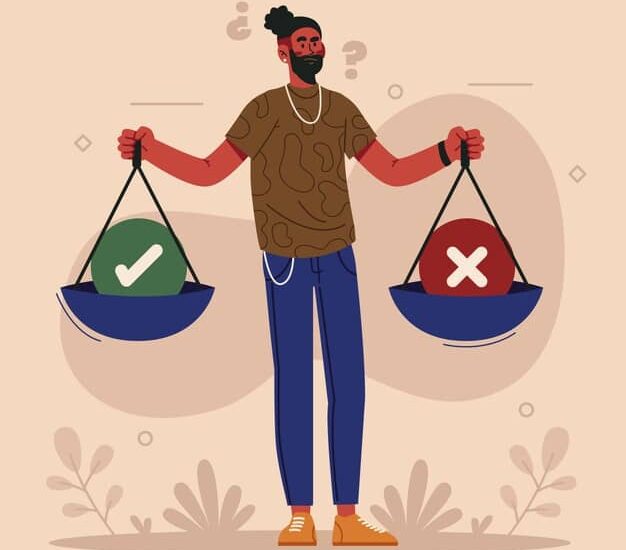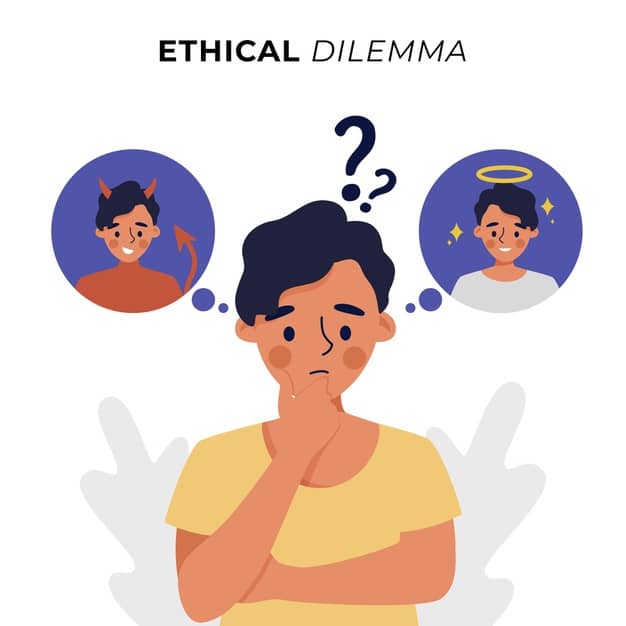As teachers, you face various moral problems in the classroom as you teach the students. From the inappropriate allocation of resources to irresponsible colleagues and team members and from behavioral issues in students to challenges in education, university teachers encounter multiple issues daily and it’s their responsibility to solve them.

To ensure that they follow the right course and make ethically correct yet difficult decisions, the teachers have to remain vigilant and not let their emotions come in between anything. If the sense of proper action of a teacher is constrained by various factors in the educational practice, and they start making resolutions contrary to the right path, incidents that involve moral distress and ethical conflict result.
Therefore, educationists cannot afford to keep their focus on academic curriculum and studies only – they also have to assume responsibility and negotiate through the diverse ethical values. If as a teacher, you are aware of the moral problems that you may face, it is possible that you will be better equipped to handle them.
How to Resolve Moral Problems
When it comes to solving problems, you need to follow a few steps that will help you make the right decision. The first thing you need to do is to identify the dilemma that you are facing. You need to learn how to deal with ethical dilemmas in the classroom. All of the moral problems have the same form i.e. “If I do this, I will get a positive consequence and if I do this, I will get a negative consequence, and so on’, as shown by various case studies.
Next up, you need to identify the need or interest that you want to meet. Once you have identified that, you need to look at the dilemma and see what is it in the dilemma that is stopping your need from being met.
View the dilemma from different angles, and make sure that you view even the negative aspects from a positive angle. Look around yourself and gather real-life examples regarding the dilemma that you are facing.
More often than not, this will help you figure out what you need to do. Let’s see a few moral problems that a teacher might face in his or her day to day work life. Also Read – 3 Easy Ways Teacher Learning Can Advance Your Career
1. Keeping an eye on parallel courses
This a dilemma that you may constantly face as a teacher. In this situation, you will have to make a choice between caring for the other courses that your students are taking on versus providing them with a challenging schedule that will maintain high expectations from them when it comes to education.
Reducing learning objectives to cater to the needs of the students will help the students but will have a negative impact on their progress. This is an ethical dilemma that you would need to figure out while teaching.
2. Asking students to participate in discussions
Another ethical dilemma that you might face as a teacher would be asking and pointing out students when a group activity, such as group discussion, is going on. Here, you will be forced to choose between stimulating your students’ thoughts and actions as they discuss things as team members, and letting them feel stay in their comfort zone, thereby prioritizing their psychological safety and well being.
You can ask them difficult questions and keep them interested in the class discussion, but if they don’t know the answer, they might end up feeling alienated.
3. Giving students a helping hand
As a teacher, several students will come up to and ask various questions. It is your job to decide whether those questions and queries need your assistance, or you should let the students figure things out on their own. You can help the students with their education, but not at the expense of making them lazy and co-dependent. Related – Inclusivity: 7 Dynamic Ways Teachers Can Fight Discrimination
4. Whether to give students a choice or not
Another challenge that you might face as a teacher is when it comes to giving your students a choice – be it a choice of answering a question in the paper or making attendance mandatory. Many teachers allow their students to turn in a final assignment or report instead of a final quiz or exam.
However, there is always a risk of your students not accepting your authority if you give them too much of a choice and if you keep a hard hand on them, they will deem you authoritative and dictatorial which is never a good idea.
5. Positive Relation with your students
As a teacher, it is your duty to keep all the students on board. However, a dilemma will arise regarding the abilities of the students. When you assign a task to your high school class as you are teaching, not all the students are capable of handling it with the same expertise.
Plan a teaching model so that you maintain the level of challenge in the education of your class. However, if you lower the level of the challenge that you assign to your students, it may hinder their academic growth and progress.

Final Word
In the world that we live in, it is not easy to identify the right path, especially when teaching. Our actions have consequences – and those consequences affect the lives of those around us. As teachers, it is our duty to ensure that if we face a moral and ethical dilemma when in class, we act responsibly and solve that issue in a morally correct way.
Here’s to you being a great teacher!
Related – Perimeter Formula – Compete Guide with Examples





